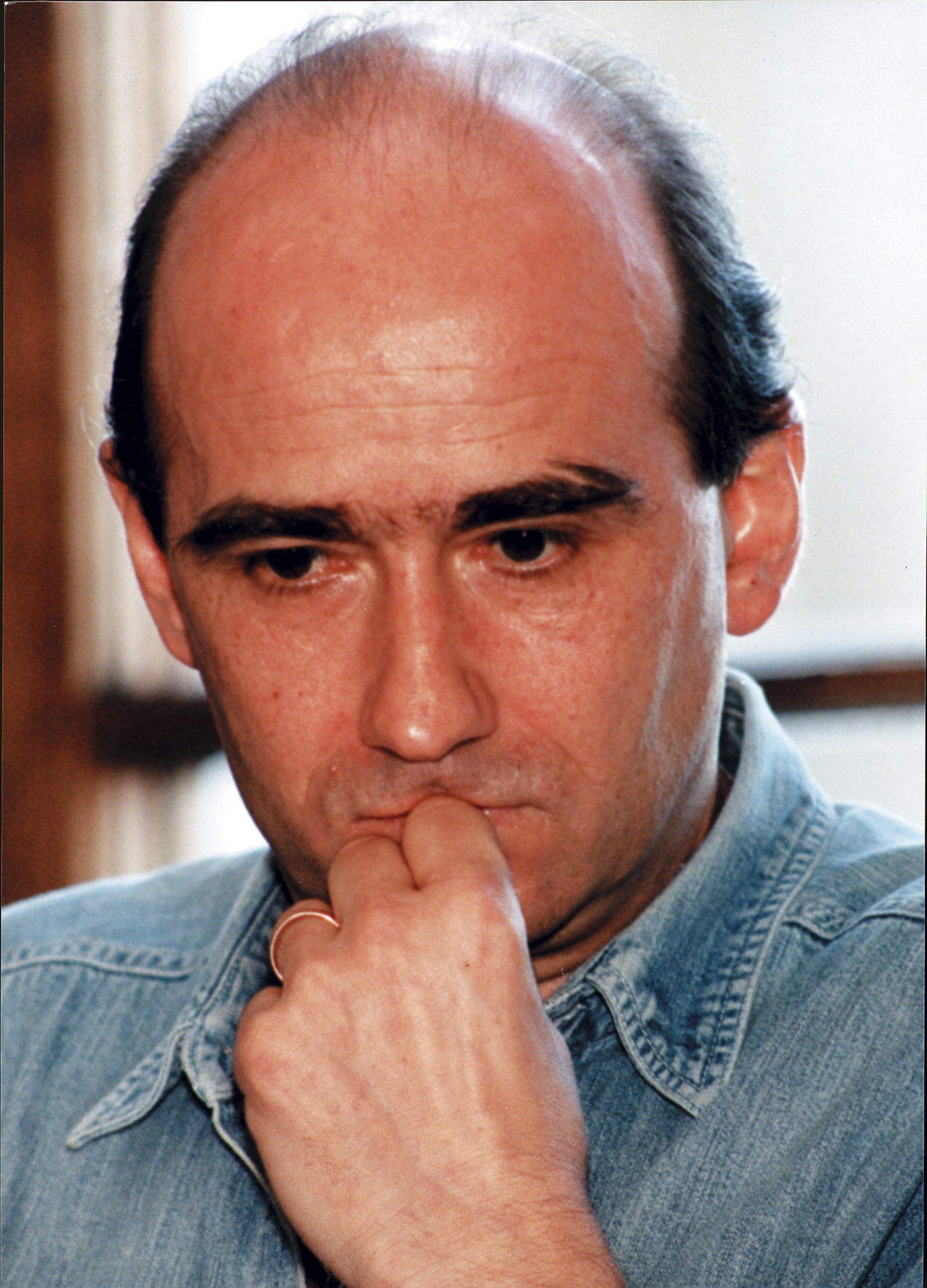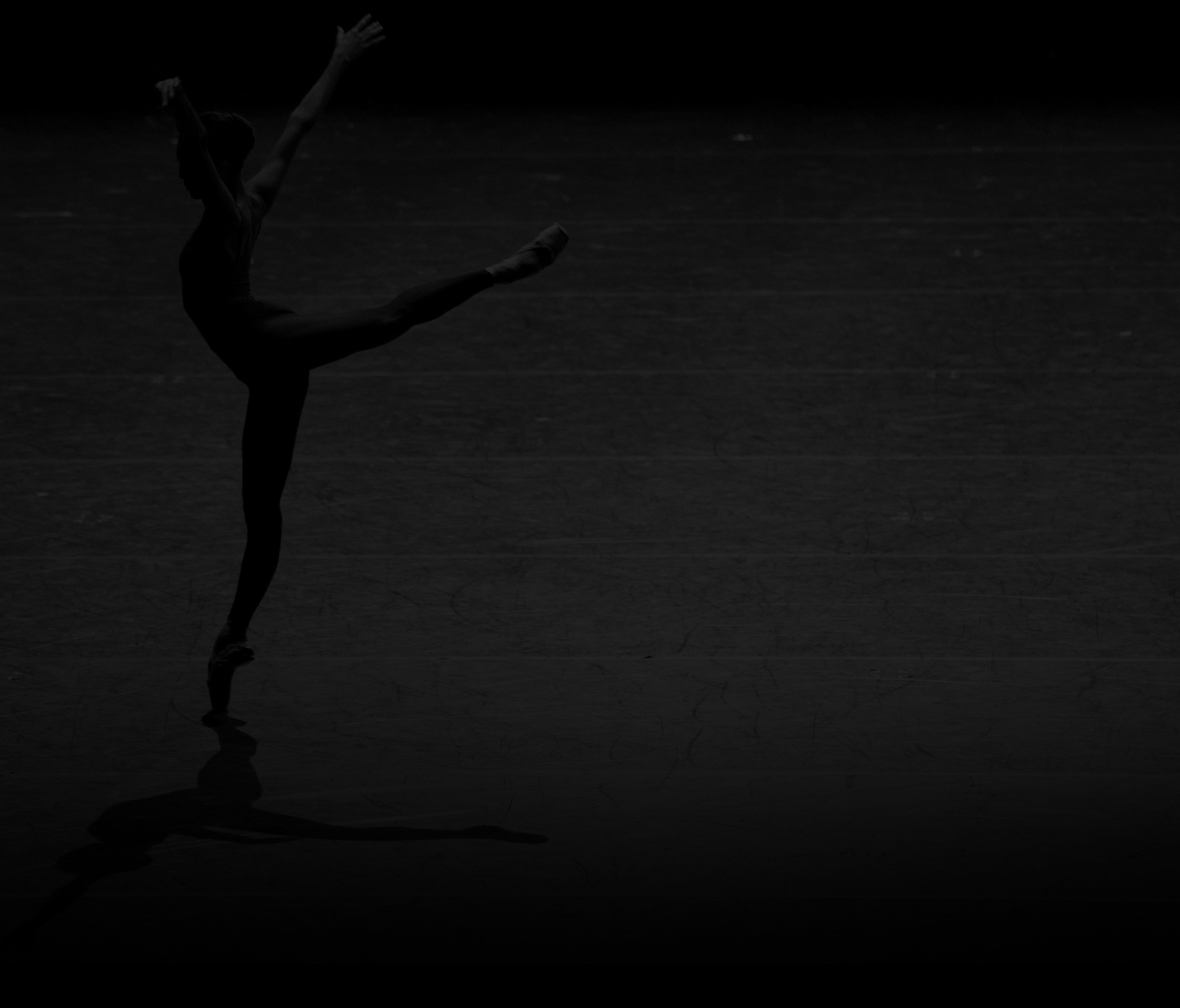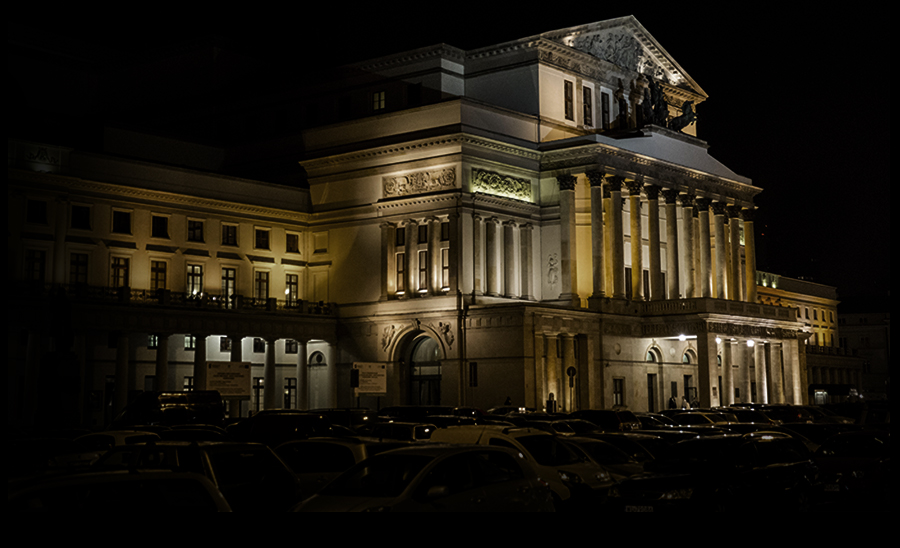
A graduate of the State Ballet School in Poznań (1966), Emil Wesołowski was first a dancer in the ballet company of the Poznań Opera (1966–73). When Conrad Drzewiecki organized his autonomous Polish Dance Theatre in Poznań, he invited him to be its soloist, and in 1976 appointed him the new group’s principal dancer. With this company, Wesołowski created a number of dance roles choreographed by Drzewiecki, and was the first to dance the part of Jason in Teresa Kujawa’s Medea. He performed with the Polish Dance Theatre in many countries across Europe as well as featuring in several ballet films by Drzewiecki. He was a teacher of the Poznań ballet school, taught ballet master classes at the Polish Dance Theatre, and designed his first choreographies for drama theatres.
In the 1979–80 season, he headed the ballet company of the Wrocław Opera, and later of the Poznań Opera House. Finally, in mid-1982, he joined Warsaw's Teatr Wielki as its ballet's head and soloist. Initially, he performed three major character parts here as well: Carabosse the wicked fairy godmother in Gusev's The Sleeping Beauty, the Widow Simone in Ashton's La Fille Mal Gardée, and the Headmistress in Lichine's The Graduation Ball. in 1985 he resigned as head of ballet and devoted himself fully to choreography. In 1995–2006 he again served as the director of the ballet of the Teatr Wielki – Polish National Opera, and from the beginning of 2007 to the autumn of 2008 – as the artistic director of the Poznań Opera House. Next, he returned to Warsaw, becoming Polish National Ballet's resident choreographer, a function he held until the end of 2012. Currently, he is a lecturer of the Aleksander Zelwerowicz Academy of Dramatic Art.
Emil Wesołowski's original choreographic projects include: Quattro Movimenti (music: B. Schaeffer, Wrocław Opera, 1980); Ballade (music: F. Chopin, 7th Łódź Ballet Meetings, 1983); Tritons (music: Z. Rudziński, Teatr Wielki in Warsaw, 1985); Games (music: C. Debussy, Teatr Wielki in Warsaw, 1989, then: Grand Theatre in Łódź, Polish Dance Theatre, Wrocław Opera); Mozartiana (music: P. Tchaikovsky, Polish Dance Theatre, 1990); The Legend of Joseph (music: R. Strauss, Grand Theatre in Łódź, 1991, and Teatr Wielki in Warsaw, 1992); Dies Irae (music: R. Maciejewski, Teatr Wielki in Warsaw, 1991); Le Sacre du printemps (music: I. Stravinsky, Teatr Wielki in Warsaw, 1993); Romeo and Juliet (music: S. Prokofiev, Teatr Wielki in Warsaw, 1996, Baltic Opera in Gdańsk, 2000, and Poznań Opera House, 2008); Clio's Triumph (music: J. Sapiejewski, Washington Ballet, 1997); ballet triptych: Harnasie, Returning Waves, Krzesany (music: K. Szymanowski, M. Karłowicz, W. Kilar, Teatr Wielki in Warsaw, 1997); Harnasie (music: K. Szymanowski, Poznań Opera House, 1998); The Miraculous Mandarin (music: B. Bartók, Teatr Wielki in Warsaw, 1999); Sacred Spring (music: I. Stravinsky / T. Mieczkowski, Teatr Wielki in Warsaw, 2001); Returning Waves (music: M. Karłowicz, Poznań Opera House, 2003); Spartacus (music: A. Khachaturian, Teatr Wielki in Warsaw 2006), Chopinart (music: F. Chopin, Baltic Opera in Gdańsk, 2010), The Kisses (music: J.S. Bach, Polish National Ballet, 2010)
He has designed choreographies for numerous opera productions, for the Warsaw opera house as well as other Polish and foreign theatres, including productions by Mariusz Treliński: Puccini's Madame Butterfly (Warsaw, Washington, St. Petersburg, Tel Aviv, Valencia), Szymanowski's King Roger (Warsaw, Wrocław), Verdi's Othello (Warsaw), Tchaikovsky's Onegin (Warsaw), Mozart's Don Giovanni (Warsaw, Los Angeles, Wrocław), Tchaikovsky's The Queen of Spades (Berlin, Warsaw, Łódź, Tel Aviv), Giordano's Andrea Chénier (Poznań, Washington, Warsaw), and Puccini's La Bohème (Warsaw, Washington). At music and drama theatres, he has worked with directors such as Laco Adamik, Kazimierz Dejmek, Mikołaj Grabowski, Jerzy Gruza, Jerzy Grzegorzewski, Adam Hanuszkiewicz, Bohdan Hussakowski, Krystyna Janda, Ryszard Peryt, Maciej Prus, Jérôme Savary, Marek Weiss-Grzesiński, Krzysztof Zaleski, and Krzysztof Zanussi. His long-time choreographic collaboration with Janusz Wiśniewski on the latter's original theatre and opera productions was especially successful.
The year 1998 saw his debut as stage director, when he staged Rossini's Semiramide for Ewa Podleś at the Polish National Opera. He later returned to directing when he became the artistic director of the Teatr Wielki in Poznań, successfully staging Moniuszko's The Haunted Manor and musical Fiddler on the Roof; at the Baltic Opera, he directed Johann Strauss's Der Zigeunerbaron.
Emil Wesołowski has been granted an Officer's Cross of the Polonia Restituta Order, a Silver Cross of Merit, a Medal for Contribution to Polish Culture, a Gloria Artis Silver and Gold Medal for Merit to Culture - Gloria Artis and a National Education Commission Medal for his special contribution to education. He also holds a ZAiKS (Association of Stage Authors and Composers) Award for lifetime achievement, and is an honorary citizen of Poznań.
ph. Paweł Rosłon






 ''
''